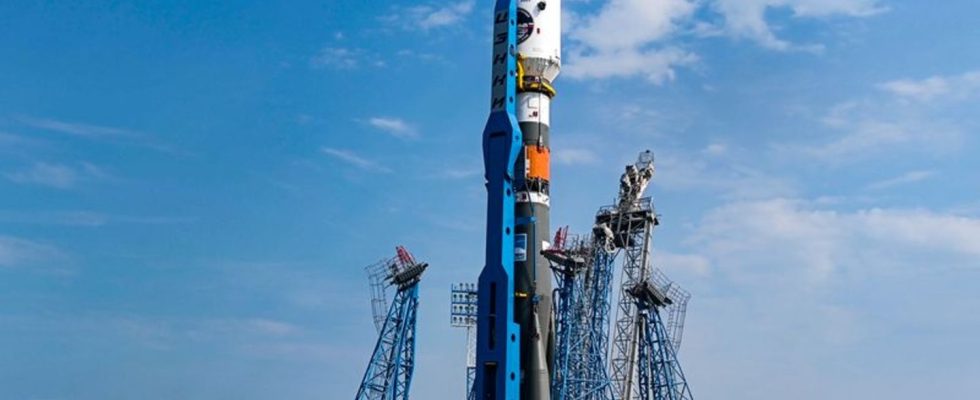space travel
Moon mission: Russia’s “Luna-25” has started
The Soyuz-2.1b carrier rocket with the “Luna-25” space probe on board is at the launch site at the Russian Vostochny Cosmodrome. photo
© Uncredited/Roscosmos State Space Corporation/AP/dpa
The mission was actually supposed to take place in 1976. Almost 50 years later, the space probe has now launched.
The Soyuz-2.1b carrier rocket with the probe on board took off as planned from the new Vostochny Cosmodrome in the Amur region at 9.10 a.m. local time (1.10 a.m. CEST), as shown in a live transmission by the Russian space agency Roskosmos. Everything is in the normal range, they said. The travel time to the earth satellite is therefore four and a half days. Because of technical problems, this first mission since 1976 had been postponed.
Soil samples are to be analyzed
Actually, the probe should have been on the way for a long time. The first planned launch date for a lunar probe was 2012, and May 2022 was last targeted. “Luna-25” is part of the Russian lunar program. This envisages building a space station on the celestial body by 2040. Russia is thus building on its Soviet “Luna” program, in which space probes also brought moon rocks to Earth.
“Luna-25” should now help to develop a technology for a soft landing. For this purpose, the probe should collect and analyze soil samples from the moon, it said. The planned investigations also include a study of the surface layers in the area of the south pole of the moon.
In the far eastern region of Khabarovsk, the authorities had announced an evacuation of the village of Shakhtinsky for today before the planned launch of the rocket because the first rocket stage of the Soyuz could hit there. Roskosmos originally worked with the European space agency Esa on the Russian lunar program. However, after Russia’s invasion of Ukraine more than 17 months ago, ESA ended cooperation with Moscow.

